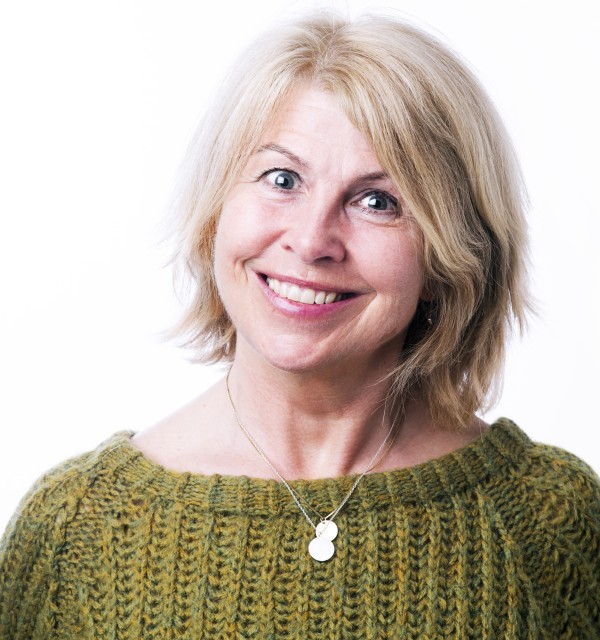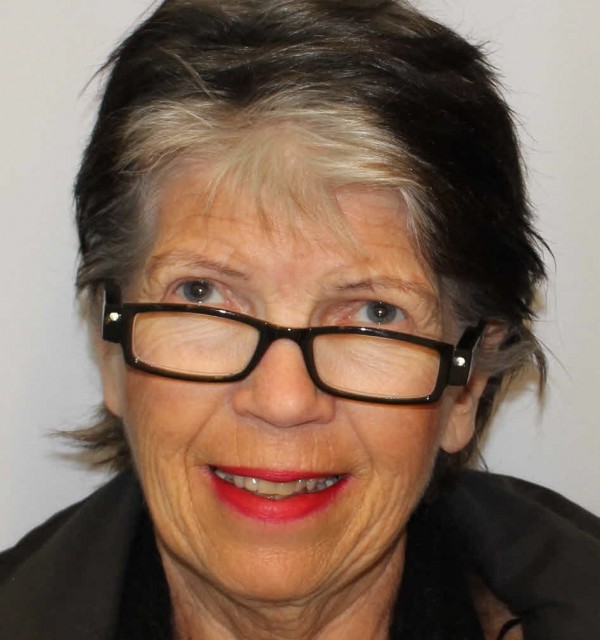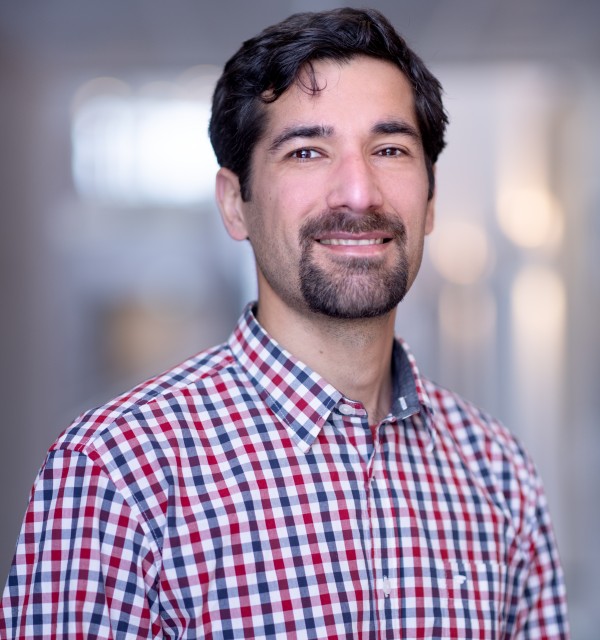UiS researchers at the Faculty of Health has identified the urgent need to develop an educational program for Breast Cancer (BC) survivors. Known as Breast Cancer School, it has enhanced breast cancer survivors' quality of life based on patient participation and interaction with experts and peers.
Breast Cancer is by far the most common cancer among women in Norway. The educational program serves as an arena for learning from experts and fellow patients, which make cancer-affected people feel safe and motivated during and after receiving the treatment. Referring to as Breast Cancer School (BCS), the 2-day educational program has given rise to similar arenas for other types of cancer, including Prostate and Colorectal cancer, where all together have provided about 50 courses for more than 650 patients (as of the end of 2019) at the Patient Education Center, Stavanger University Hospital.
In addition to improving patients’ quality of life through strengthening their psychosocial resilience and supporting their wellbeing, the cancer schools has enabled healthcare providers to tailor their support to individual patients’ needs and adapt their communication throughout patient encounters during the entire treatment pathway. The particular research at UiS on follow-up and evaluation of these cancer schools has resulted in concrete changes in clinical practice related to effectively engaging with cancer survivors in the design and implementation of patient education programs.
Underpinning research
This case story is centered upon the work of Siv Tove Aunan and Britt Sætre Hansen at the Department of Quality and Safety in Health Care Systems, and Gry Ciekals Wallgren at the Department of Caring and Ethics, Faculty of Health Sciences, University of Stavanger. The story of Cancer Schools (CS) at UiS started back in 2012 when Siv Tove Aunan was carrying out her master’s thesis on BC patients and their description of quality of life from diagnosis and through adjuvant treatment. This study has highlighted the critical role of providing individually tailored information to patients and creating meeting places for women in the same life situation [1]. In terms of clinical practice, the results have suggested that establishing a dedicated educational program will standardize the information transfer process occurring between patients and healthcare providers, and hence ensure the consistency of communication between these two groups.
Since the launch of the BCS as the first CS in Stavanger in the spring of 2014, Aunan and Hansen has been conducting follow-up surveys and investigations in order to evaluate the educational programs and contribute to the continuous improvement of CSs building upon the patients' own experiences. In one of these studies that was published in 2018, all BCS participants in the period 2014-2017 were invited to join focus group interviews, where eventually 20 of them were recruited. Three focus groups containing six or seven participants were organized. They were women with early‐stage BC receiving adjuvant treatment and were aged 20–70 years.
According to the content analysis in the above study, BCS is perceived as a balancing act between the need for and fear of information. Lectures from experts and meeting with fellow patients gave additional important information to BC survivors in general, though some of them has also expressed fear of receiving undesirable information or information overload as a reason for avoiding to join such educational programs [2]. Consequently, BCS addresses both a systematic and individual approach to information and communication representing expert information, support from fellow patients, and networking. On the one hand, BCS has proved to be successful in streamlining a systematic approach to information based on the expressed needs of the patients towards making them feel safe and providing them with predictability in an unpredictable life situation. The transition from no structure for cancer patient education to established CS has thus benefited both patients and health-care providers concerning knowledge exchange both within and between their peer groups. On the other hand, the focus group interviews pinpoint that BCS has led to improving the individualized approach to patient monitoring and therapy through continuity of care and staff availability. The interaction with patients during the 2-day program is indeed assisting health-care providers in terms of tailoring their support to individual patients’ needs.
In another study, Aunan and Hansen focused on Prostate Cancer School (PCS) and explored how 16 Prostate Cancer (PC) survivors experienced information received specifically at the school and generally along their treatment pathway. This work corroborates the results of their previous study on BCS regarding the importance of a structured, yet informal patient education program that pave the way for effective communication between patients and their direct contacts in the healthcare system as well as with the interprofessional teams. The study also demonstrates that not only the information content of a patient education program but also its timing that affects the effectivity of such communication [3]. According to the PC survivors, PCS has encouraged communication and knowledge exchange about topics such as sexual dysfunction and urinary incontinence in post-treatment phase that are seldom discussed elsewhere. In addition, participants in this study underline the invaluable role of PCS in fulfilling their need for repeating information that they received earlier during diagnosis and early treatment, and that they should be given the possibility to partake in the education program when they feel ready to address the issues that may arise from the undergoing treatment.
Results from these follow-up studies has enabled the UiS researchers to secure funding from Folke Hermansens Fund for a research project on BC survivors’ return to work where the amin objective is to identify the factors that may facilitate or hinder this process.
References to the research
[1] Aunan, S. T (2012). Livskvalitet hos kvinner med brystkreft under behandling (Master's Thesis). Retrieved from https://uis.brage.unit.no/uis-xmlui/bitstream/handle/11250/184178/Aunan%20Siv%20Tove.pdf?sequence=1&isAllowed=y
[2] Aunan S. T, Wallgren G. C, Saetre Hansen B. (2018) Breast cancer survivors' experiences of dealing with information during and after adjuvant treatment: A qualitative study. Journal of Clinical Nursing;28(15-16):3012-3020. doi: 10.1111/jocn.14700
[3] Aunan S. T, Saetre Hansen B, Wallgren G. C. (in press) The value of information and support: Experiences among patients with prostate cancer. Journal of Clinical Nursing
Details of the impact
BCS, and its offshoot education arenas for other types of cancer, support the Norwegian government’s obligation for providing patient education to cancer survivors along their treatment pathway. The research underpinning the development and improvement of these CSs has yielded substantial and far-reaching impacts for three groups of beneficiaries: (a) cancer survivors and their families, (b) clinicians, and (c) administrators and directors in the healthcare sector.
Cancer survivors and their families. The educational programs of the CSs have been delivered to more than 650 patients at the Patient Education Center, Stavanger University Hospital (as of the end of 2019). Course evaluation data indicates that 85% of attendees said the course met their training needs, and many of them remark that every cancer patient should join the course. While providing information to the patients is a part of all treatment pathways in Norway, CSs have enabled systematic training where the focus is on interaction with patients and effective communication. As such, the biggest advantage with the latter is exchanging the knowledge so that the information is utilized by both the patients and the clinicians, which is completely different from just making a brochure and handing it out to the patients. In addition, CSs deliver quality assured (research-based) and to-the-point information to cancer survivors, in contrast to the wealth of flawed information that they are exposed to via social media, blogs, relatives etc.
From the start of the BCS, the aim was to create an arena that could not only inform cancer survivors about their diagnosis and treatment, but also enhance their knowledge about various aspects that affect their quality of life during and after the treatment. As mentioned by one participant in the BCS: “I am learning how important it is to give myself more priority and generally how to relax. BCS has motivated us to be more active and exercise on a regular basis, helped us value healthy nutrition and understand how BC influences our sexual function [A]”. These variety in the educational programs of the CSs has raised cancer survivors’ awareness of the benefits of self-management support for patients, made them aware of a range of welfare services available through the local experts, fellow patients and their networks.
In addition to the generic impact of the present CSs on cancer survivors diagnosed with any of the three types of cancer, some specific cancer groups report additional advantages for their participation in the educational programs. Men diagnosed with PC often feel very isolated as they are reluctant to talk to others about their condition, and as it is so rare, they do not encounter others who have experienced it. PCS has however created informal contacts between PC survivors where different concerns including signs and symptoms of the cancer, the treatment options, recovering from surgery, as well as several sensitive topics such as how to tell other people about their cancer, using the toilet, the effect on sex and relationships, and the impact of surgery on men's sense of masculinity and confidence are brought up. A participant in PCS reports how talking and sharing experiences with fellow PC patients can lead to changes in ways of thinking, thereby improving health and satisfaction: “When we get into a situation as now and have reduced sexual health, we lose some manhood in a way. If I can compare it to women who must remove a breast due to breast cancer, they talk about their challenges in debates and on TV. We are just starting to talk about our challenges now, … and this will help us to reframe our new life [B]”. Even though families of cancer survivors are not joining the CSs (this is indeed a deliberate preference for survivors themselves), they also benefit from the education programs as the patient has now access to a network that helps reduce his/her feelings of isolation, and thus releasing some burden and stress placed upon families whose full attention and energy need to be focused on the care of their patient [C]. This has then reduced the risk of suffering from severe mental illnesses such as depression or anxiety disorder.
Clinicians. Thanks to a true engagement of front-line staff from a range of professional groups including oncology nurse, radiation therapist, oncologist, nutritionist, physiotherapist and sexologist, CSs are currently incorporated into the self-management support for several types of cancer patients. This engagement has led to quite a few gains for clinicians, including [D]:
- Raised their awareness about that the work they do regarding cancer treatment is connected and not isolated. The course provides the opportunity to get a good connection with other professional groups as well as to patients.
- Increased their insight on what it is like to be diagnosed with and to live with cancer, which has then enhanced how they deal with cancer patients in order to assure availability and continuity of care as important factors for improving cost effectiveness.
- Enabled smoother communication with cancer survivors so that the clinicians can get users' experiences as a prerequisite for developing the quality of their service. During the courses, they may receive questions that they have not thought about before, which turns to be essential for learning and updating themselves.
Administrators and directors in the healthcare sector. The research described above has documented that CSs has transformed the way information is shared and sought. Following the success of the present CSs, more and more directors in the other departments of the Stavanger University Hospital are contacting the Patient Education Center to develop equivalent courses for the patients [E]. This is basically due to the fact that this research has raised the awareness of healthcare administrators about how crucial it is to involve patients in the design, implementation and evaluation of educational programmes to be able to tailor their need for information and support.
Sources to corroborate the impact
[A] BC survivors that were interviewed in connection with study [2]
[B] PC survivors that were interviewed in connection with study [3]
[C] Norwegian Breast Cancer Society – local office in Stavanger
[D] Chief oncologist at the Department of blood and cancer diseases, Stavanger University Hospital
[E] Head of Patient Education Center, Stavanger University Hospital
Department of Caring and Ethics
Department of Caring and Ethics
Department of Innovation and External Collaboration


